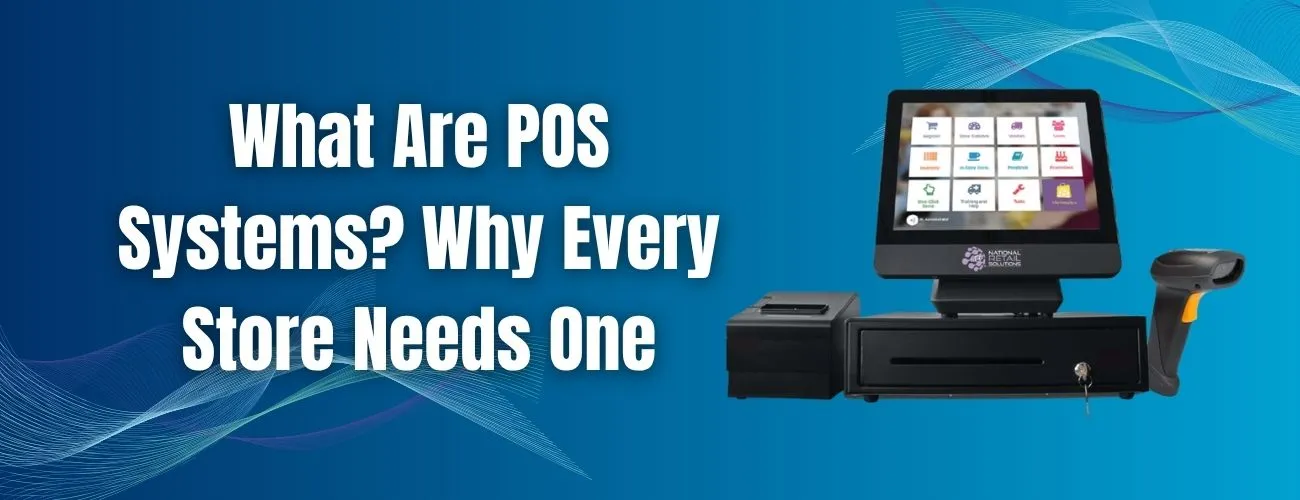What Are POS Systems and Why Businesses Need Them
A What are POS systems consists of hardware and software that enable retail organizations to receive payments, perform sales tracking, as well as carry out necessary activities in real-time. It’s like a place where a customer can make purchases, raise seed receipts, and store data within a hub.
Modern POS systems have evolved from mere cash registers to sophisticated apparatuses that integrate and facilitate payment options by automatically managing inventory and adding business intelligence. From retail stores to a restaurant, moving across food trucks, a parlor, and finally a reception desk, POS systems have continued to penetrate each of these sectors.
To name some of the popular POSs in India-Razorpay POS and the ePOS App. Both aim to facilitate transactions to maximize end-user experience.
2. Example of POS System
A commendable instance from the global sports chain that has efficiently adopted Razorpay POS across all its outlets.
Putting it into action:
- Customer Purchases: A customer picks his/her sports gear.
- Item Scanning: The article is set in; price and quantity display on the screen instantaneously.
- Payment Processing: Customers can pay through cards, UPI, wallets, and other online methods, thanks to seamless integration.
- Order Summary: The POS prints an itemized bill and gives the customer transparency.
- Inventory Management: The stock level automatically adjusts with every sale.
- Customer Data Collection: With consent, Decathlon collects purchase history and contact details for loyalty program purposes.
- Online Analytics: Sales data for insight generation concerning buying patterns and trends.
This example demonstrates how a POS system streamlines a business’s day-to-day operations while also enhancing customer satisfaction.
3. Types of POS Systems
There are various POS models that a business can choose from, depending on what it needs:
- Mobile POS: Operates solely on smartphones.
- Web POS: This can be accessed through browsers and is based on the cloud.
- Desktop POS: For fixed locations installed on PCs.
- Handheld POS: Smaller devices, most suited for food trucks and delivery.
- Tablet POS: Light systems put to good use in small cafes and retail stores.
- Terminal POS: The general types of systems seen in supermarkets.
- Self-service Kiosk: Common at quick-service eateries.
- Touchscreen POS: The very easy checkout way of doing things.
- Multichannel POS: A unified system between offline and online operations.
- Omnichannel POS: It actually gives customers a consistent customer experience within the sales platform.
4. Specialized POS Solutions by Industry
Various industries will have their own specialized POS solutions:
- The retail point of sale: Inventory management, coverage of CRMs, and analytics of sales.
- Hospitality POS: Reservations, personalization of the menu, and the kitchen display.
- Healthcare POS: Patient data security, compliance, and EHR Integration.
5. How Does a POS System Work?
There is a basic stepwise procedure that is followed by any POS system, and that is:
- Transaction Start: where one checks out for the customer by adding items from the customer basket.
- Item Scanning: Bar codes are hit for price and information.
- Product Information Retrieval: It originates all information directly from its database.
- Price Update: Include discounts, taxes, and sum totals.
- Payment Processing : Customers either pay cash, cards, or through online payment.
- Receipt Generation: A receipt issued mainly through a POS printer.
- Inventory Update: Automatic adjustment in stock levels.
- Sales Reporting: Transaction details recorded in the system to report.
- Integration with Other Tools: Connects with CRM or e-commerce or accounting software.
- Security Measures: Protects data through encryption and compliance standards.
6. Benefits of POS Systems
Data are delivered for the month of October 2023. Your business benefits from POS systems in various ways:
- Correct pricing and billing without errors.
- Small business efficient POS software helps save time and cuts down on loss for the owners.
- Sales analysis and reports regarding performance are detailed.
- Stock can be tracked live.
- Faster checkout has resulted in better customer service.
7. Hardware & Software Components of POS
1. Hardware Components
- POS Terminal.
- Barcode Scanner.
- Cash Register.
- POS with Printer (receipt printing).
- Card Reader.
- Customer Display.
- Cash Drawer.
- Signature Capture Pad.
- Kitchen/Bar Printer.
2. Software Components
- POS software best for overall transaction handling.
- Inventory Management Software.
- Payment Processing Software.
- Reporting & Analytics Tools.
- CRM Software.
- Security Software.
- Integration Software.
- Updates & Support Software.
8. Cloud-Based vs On-Premise POS Systems
| Feature | Cloud-Based POS | On-Premise POS |
| Hosting | Remote servers | Installed locally |
| Deployment | Quick, easy | Requires setup |
| Cost | Subscription model | Higher upfront investment |
| Scalability | Flexible, easy to expand | Limited, hardware-dependent |
| Maintenance | Vendor-managed | In-house IT team |
| Accessibility | Available anywhere online | Restricted to local use |
| Internet Dependency | Needs a stable internet | Works offline |
9. Choosing the Right POS System
When choosing a POS system, businesses must:
- Understand their specific needs (retail, hospitality, healthcare, etc.).
- Establish a probable budget.
- Use existing systems and ensure compatibility with them.
- Check for staff-friendliness.
- Consider scalability and availability of mobile apps.
- Support for multiple payment options.
- High security.
- Customer support and service.
- POC before the actual purchase.
10. Razorpay POS Benefits
Razorpay POS has surely become a much preferred option for all types of businesses across the board. Its benefits include:
- Payment processing that’s quick and fuss-free.
- Fewer manual errors.
- Easy mobility for business on the go.
- Easy integration into business tools.
- Reliably backed by support and analytics.
- Quick and hassle-free payments
- Reduced manual errors
- Easy mobility for business on the go
- Smooth integration with business tools
- Reliable support and analytics
FAQs
1. Whom would you consider as potential users of a POS system?
Any company that involves hand transactions, whether online or physical.
2. Which businesses may actually benefit from the use of a POS?
Foodies, fast food outlets, diners, salons, fitness centers, retail stores, and as such.
3. Is a POS system relevant for small businesses?
Yes, pos software is pretty affordable and user-friendly, and helps boost efficiency for small businesses.
4. Can a POS system take care of restaurants?
Yes. pos software for restaurant manages table orders along with kitchen integration and billing very efficiently.






